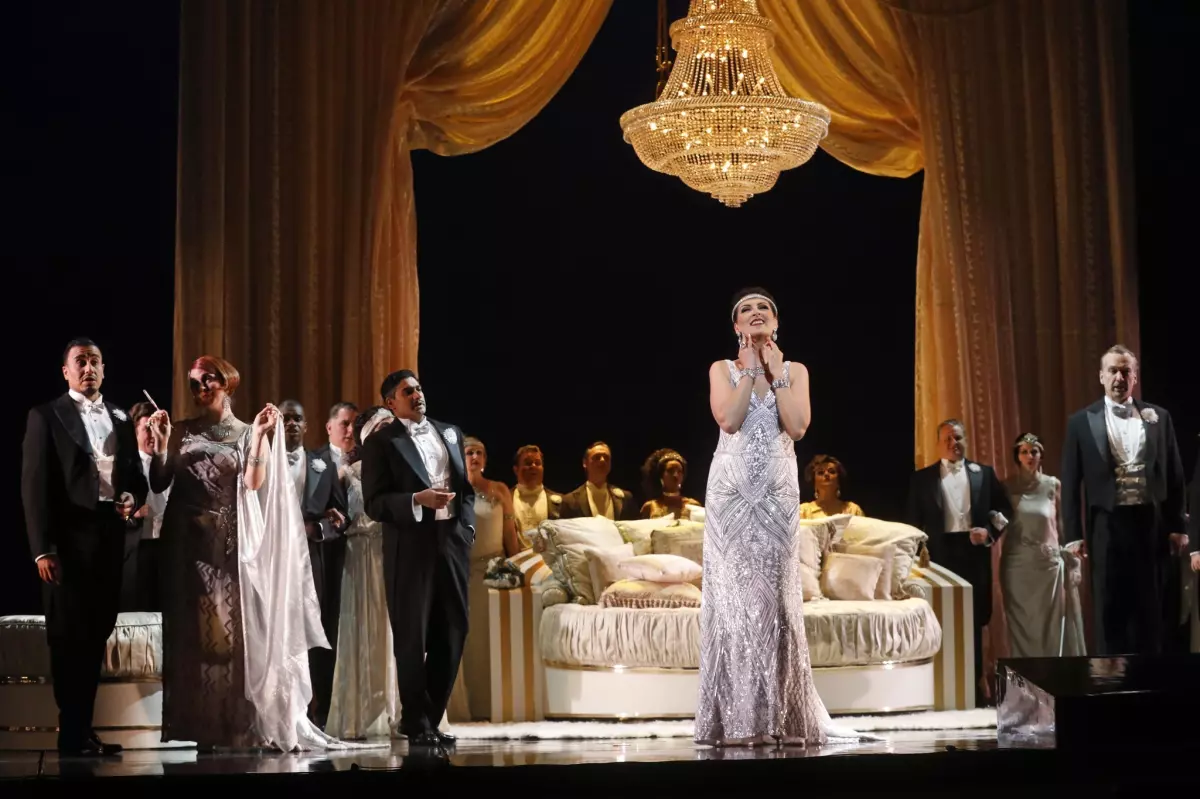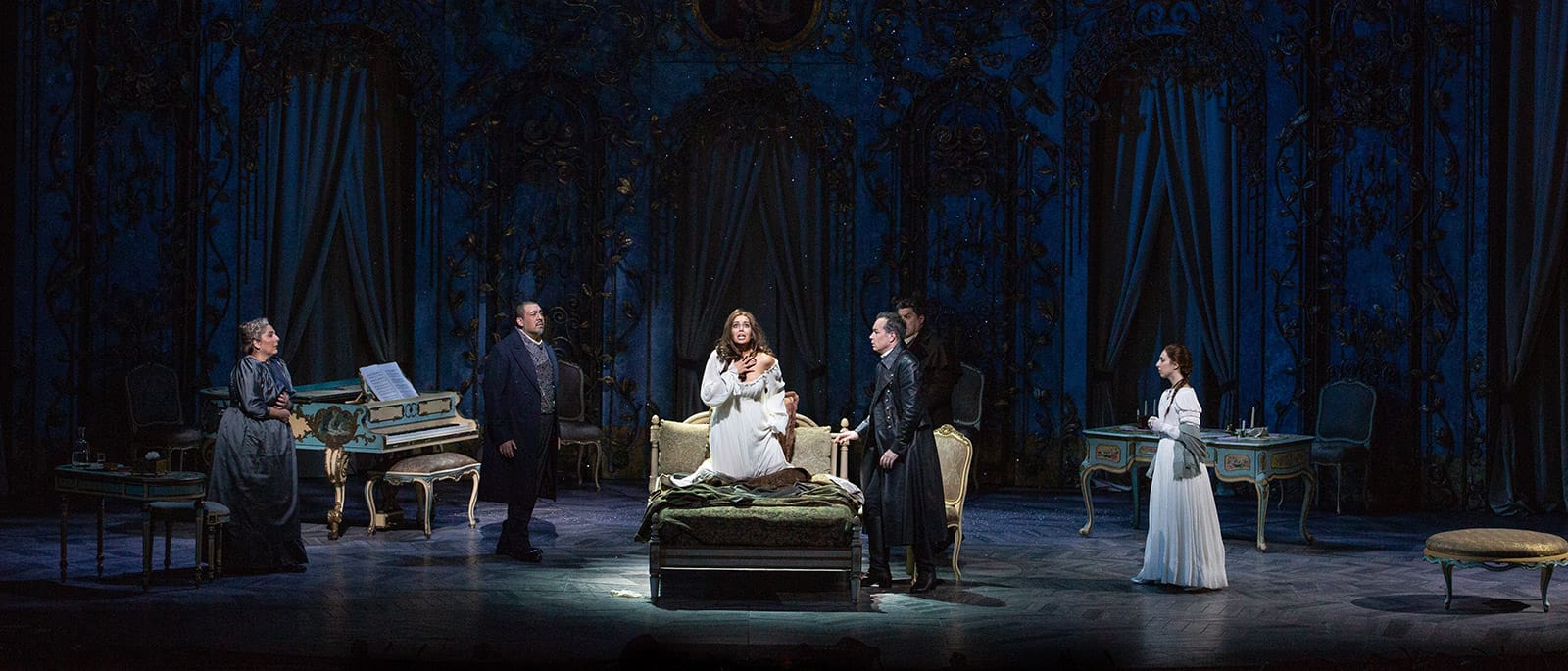A Timeless Opera Masterpiece
La Traviata by Verdi, premiered in 1853, is a celebrated opera based on Dumas fils’ La Dame aux Camélias. It explores love, sacrifice, and societal judgement through Violetta Valéry’s tragic story. Known for its powerful music, it remains a timeless classic.

La Traviata vividly captures the intense personal struggles and societal pressures confronting its central character, Violetta Valéry. Renowned for its deeply emotional music, this opera stands as a celebrated cornerstone of the operatic repertoire.
The narrative unfolds in three acts, set against the backdrop of mid-19th-century Paris and its surroundings.
Act 1: A New Beginning
The opera opens at an opulent soirée hosted by Violetta Valéry, a celebrated courtesan who, despite her apparent vitality, suffers from tuberculosis. Amidst the revelry, Alfredo Germont, a sincere and passionate admirer, confesses his love. Initially sceptical and doubtful of such enduring affection, Violetta is moved by Alfredo’s earnestness and decides to explore their potential together.
Act 2: A Complicated Love
In the second act, Violetta and Alfredo have retreated to a tranquil countryside life, away from the bustling Parisian high society. Their bliss is disrupted by a visit from Alfredo’s father, Giorgio Germont. Giorgio discloses that their relationship is creating scandal and endangering Alfredo’s sister’s forthcoming marriage. He persuades Violetta to leave Alfredo for the sake of his family’s honour. Heartbroken but selflessly, Violetta agrees to part ways, leaving Alfredo in profound sorrow and confusion.
Act 3: A Tragic Conclusion
The final act reveals Violetta’s health in steep decline. Alfredo, ignorant of the true cause of her departure, is overwhelmed by grief and remorse. He returns to Violetta’s side as she nears death. Their brief reunion is marked by fleeting joy before Violetta succumbs to her illness in the opera’s moving conclusion, leaving Alfredo in devastating despair.

Verdi’s score for La Traviata brims with evocative and potent music, amplifying the opera’s emotional resonance. Noteworthy pieces include:
- "Libiamo ne' lieti calici": The famous "drinking song" from Act 1, this spirited duet exemplifies Verdi’s ability to craft vibrant and memorable melodies.
- "Sempre libera": Violetta’s aria in Act 1, a display of vocal brilliance and emotional depth, reflects her inner turmoil between a free-spirited existence and the allure of genuine love.
- "Addio del passato": In Act 3, this poignant aria encapsulates Violetta’s acceptance of her fate and the ephemeral nature of her past joys, delivering a heart-wrenching moment.
Initially, La Traviata faced controversy from its contemporary audience due to its depiction of a fallen woman. However, Verdi’s exceptional music and the opera’s profound emotional impact eventually garnered acclaim, cementing its status as a beloved and frequently performed piece in the operatic canon.
The opera’s universal themes of love, sacrifice, and societal pressure continue to resonate with today’s audiences. La Traviata remains a powerful testament to Giuseppe Verdi’s genius, showcasing his ability to convey deep emotional truths through music. Its exploration of human relationships and societal expectations ensures its place as a timeless classic, inviting reflection through its dramatic arias and moving narrative.





